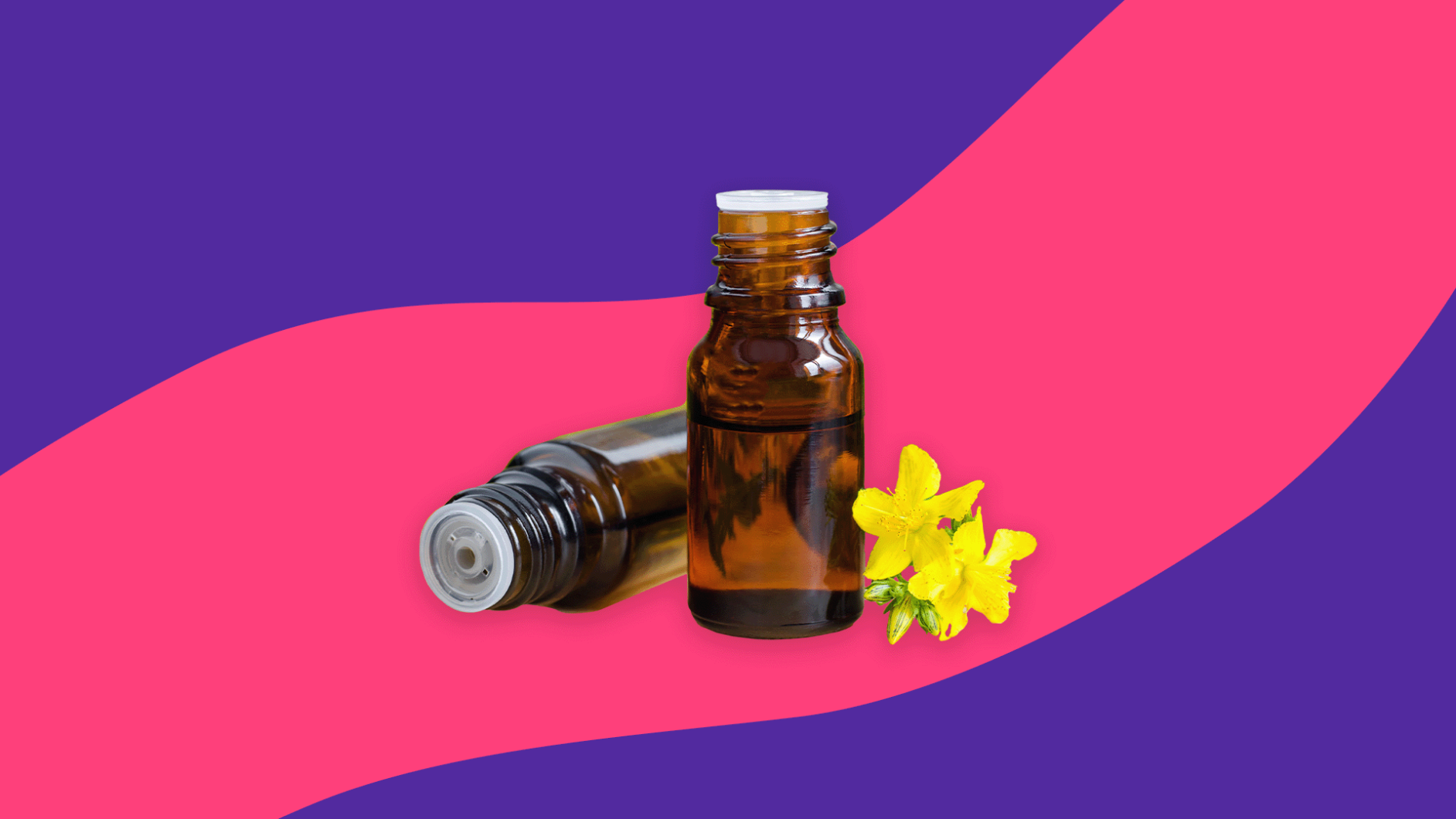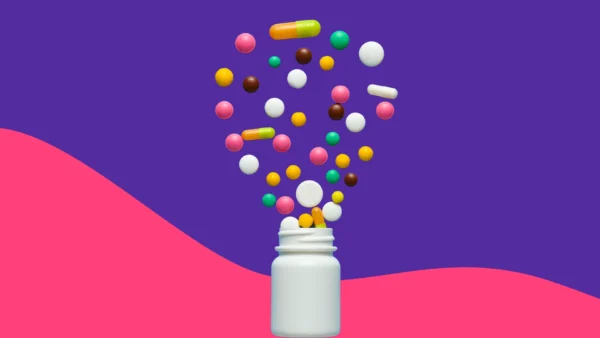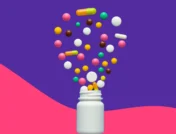The medical use of St. John’s wort dates back millennia. St. John’s wort, known for its bright yellow flowers, has been used for an array of different indications. In relatively recent times, however, St. John’s wort has become popular as an herbal aid for depression. With over 30% of Americans reported to be using herbal supplements, pharmacists should be aware of their potential benefits and risks.
Some patients may be using St. John’s wort to self-treat depression. While it may help, the potential for side effects and drug interactions should not be overlooked. For this reason, pharmacists need to talk to patients about St. John’s wort, albeit in a way that is open and non-judgmental.
RELATED: St. John’s wort coupons
Understanding St. John’s wort
St. John’s wort, known by its scientific name hypericum perforatum, is a flowering plant native to Europe and parts of Asia and Africa. The active components of St. John’s wort include hypericin and hyperforin.
St. John’s wort is believed to work as a serotonin reuptake inhibitor. It is also believed to inhibit monoamine oxidase to increase levels of norepinephrine and dopamine. Increasing levels of these neurotransmitters may play a role in relieving depression.
The active components of St. John’s wort are metabolized in the liver by the CYP enzymes. In addition, St. John’s wort can induce the CYP3A4 enzyme, which can lead to dangerous drug interactions.
The evidence behind the use of St. John’s wort
The benefits of St. John’s wort for treating depression are not entirely clear, according to different studies, and more research is needed. Several studies suggest that St. John’s wort is as effective as a placebo for treating moderate to severe depression. Other studies suggest that St. John’s wort may be more effective than placebo and similarly effective to certain SSRIs and tricyclic antidepressants for treating mild to moderate depression.
RELATED: The best diet for depression
Teaching patients about St. John’s wort
Because St. John’s wort is an herbal supplement that is not regulated by the FDA, there are some important aspects of treatment to be aware of. For example, St. John’s wort preparations are not standardized and may contain different amounts of St. John’s wort than what is labeled. Patients should be advised to research the manufacturer of the product they’re interested in to assess quality and safety. Research-grade hypericum may be an option that delivers a more predictable dose than other products.
The dosage for St. John’s wort can vary. A typical starting dosage of a product with 0.3% hypericin content is 900 mg per day. However, the dosage can range from 200 to 1,000 mg per day. It’s best to find out the dosage the patient may be taking and advise them on what may be an appropriate dose.
Always encourage patients to read the labels of supplements and educate them about the possible risks and benefits. Developing trust and rapport with the patient is a good way to have an open conversation about the herbal medications they may be taking. That way, you can find out why they may be taking an herbal medication over a prescription drug and steer them toward the right treatment if needed. Patients may be able to get better symptom relief from other, proven medications.
Safety concerns with St. John’s wort
What cautions and considerations should patients know about St. John’s wort? Patients may be at a higher risk of dangerous side effects if they also take certain medications. Having an open conversation about side effects and drug interactions is an important part of counseling patients.
Side effects
St. John’s wort can cause different side effects. Some side effects of St. John’s wort may include:
- Agitation
- Diarrhea
- Tachycardia
- Hypertension
- Hallucinations
- Photosensitivity
- Increased body temperature
- Worsened psychotic symptoms of schizophrenia or bipolar disorder
What’s the most important thing to teach a patient taking St. John’s wort for depression? One of St. John’s wort’s most severe and potentially life-threatening side effects is serotonin syndrome, which can develop from high levels of serotonin in the brain. Signs and symptoms of serotonin syndrome include increased blood pressure, sweating, dilation of the pupils, and fever. The risk of serotonin syndrome is higher in patients who are also taking serotonergic drugs.
Drug interactions
Combining St. John’s wort with an SSRI, such as fluoxetine or paroxetine, may increase the risk of serotonin syndrome. Combining St. John’s wort with an MAOI can also increase the risk of serotonin syndrome as well as hypertensive crisis.
St. John’s wort can induce the activity of the CYP3A4 enzyme and P-glycoprotein (PGP). Drugs that are substrates of the CYP3A4 enzyme and PGP may exhibit reduced effectiveness when taken with St. John’s wort. These drugs may include:
- Digoxin
- Atorvastatin
- Simvastatin
- Carbamazepine
- Alprazolam
- Midazolam
- Tacrolimus
- Cyclosporine
- Oxycodone
- Warfarin
- Ethinyl estradiol
Adjustments in dosage or treatment may be needed when taking St. John’s wort with one of these medications. As taking St. John’s wort with a contraceptive may increase the risk of an unplanned pregnancy, patients should be advised to use another method of contraception.
RELATED: St. John’s wort benefits, side effects, and interactions
Educating patients about St. John’s wort
Patients interested in St. John’s wort or already taking it may need guidance from their healthcare provider. It’s important to educate patients and gently encourage them to take the right steps to ensure their safety and health. Understanding how St. John’s wort works and developing a solid relationship with patients can be useful for educating patients in the right way.











